voter suppression
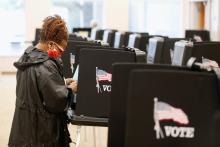
We believe all human beings are made in the “imago dei,” the image and likeness of God — it’s a core tenet of ours and many other faiths. Just as the COVID-19 pandemic has revealed how injustices in our health care and safety net systems stand in stark contrast to that core ideal, so too does any strategy that would negate a people’s votes because of the color of their skin. It is not just a partisan tactic, but rather a denial of their imago dei, a theological, biblical, and spiritual offense to God. Protecting the right to vote affirms the divine imprint and inherent value of all of God’s children.
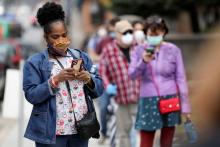
The consequences of this election — voter disenfranchisement and health risks — will fall disproportionally on Wisconsinites of color. Take Milwaukee County: Typically, the county has 180 polling locations, but on April 7, there were only five polling locations available.
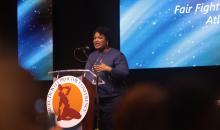
Voter suppression tactics jeopardize the very legitimacy of the 2020 election. They also represent an assault on human dignity and imago dei, because as Dr. Martin Luther King Jr. so aptly put it, “So long as I do not firmly and irrevocably possess the right to vote, I do not possess myself. I cannot make up my mind — it is made up for me. I cannot live as a democratic citizen, observing the laws I have helped to enact — I can only submit to the edict of others.”
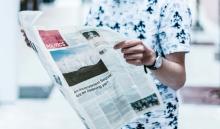
Maybe it was Rev. William Barber’s preaching that touched me with the moral call to climate justice, in partnership with Al Gore, whose organization Climate Reality Project brought this audience together for a three-day training. Later that night, I realized why the message felt personal: Barber pushed me to reframe my conversations with my daughters about climate justice in this country. I teach environmental education at a small college in North Carolina, but the way I communicated at home around the kitchen table needed a transformation.
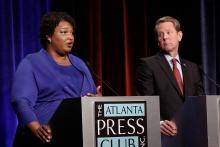
Souls to the Polls is a time-honored tradition, often led by clergy, to activate and engage congregants to exercise their right to vote that starts long before Election Day. It is a mobilization strategy to make the process of voting easier for their congregants. But sadly, voter suppression efforts targeting minorities in subtle and overt ways continue to make Souls to the Polls a critical service — placing the burden of voter education and empowerment on the backs of churches and other civil society organizations, not the government.

"My faith informs my agency in the world and we are called to use whatever resources are at our disposable," Shields told Sojourners. "Luke 11: 5-13 is a story of persistence. And when I se injustice in our system or at the least, morally gray positions held by people in power, that is a call to act in the world. As a Christian, Christ calls us to the ministry of reconciliation, and that include the process of voting."
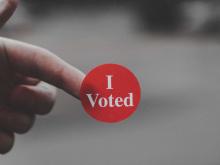
It just keeps happening. Voter suppression that is. Too many political leaders — who are disproportionately white — will use every option available to try and prevent some — disproportionately people of color — from voting. It just keeps happening, and many Americans either don’t know, don’t care, or wholeheartedly favor denying their fellow citizens of color the right to vote. Because it keeps happening, we must ask if support for this practice is as prevalent for white Christians as it is for white non-Christians.
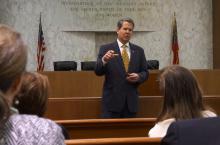
According to a report earlier this week from The Associated Press, more than 53,000 voter registration applications have been sitting on hold with Georgia Secretary of State Brian Kemp’s office. The people on the list are predominantly black, and may not even know their voter registration has been held up.
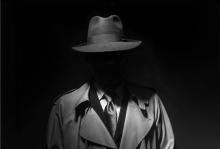
WHAT DOES ELECTION-RIGGING LOOK LIKE? Often, on its face, it looks quite benign.
Take Ohio. The official elections website of Ohio’s secretary of state proclaims that “all eligible Ohioans have equal access to one of the best elections systems in the country.”
But “equal access” isn’t always what it appears.
Ohio provides only one polling station per county for early voting—which on the surface gives the impression that the system is fair and equitable. But—and here’s the rub—the counties are fundamentally different. For instance, Pickaway County, just south of Columbus, has fewer than 60,000 residents. Hamilton County, where Cincinnati is located, has a population of more than 800,000 people. But each county only has one early-voting station.
The results have been predictable—and have not been race-neutral. In the 2012 presidential election, there were no lines to vote early in Pickaway County, which is 94.5 percent white. But Hamilton County, with its 206,000 African-American residents, had a line that stretched a quarter mile. According to UrbanCincy.com, voters in Cincinnati reported wait times of more than four hours, and other urban areas, such as Cleveland and Columbus, faced similar obstacles. (Comparable delays occurred in 2016.) The Republican Party chair for Columbus’ county defended the long waits, telling the Columbus Dispatch, “I guess I really actually feel we shouldn’t contort the voting process to accommodate the urban—read African American—voter turnout machine.”
Unfortunately, Ohio is not alone. According to a report in Mother Jones titled “Even Without Voter ID Laws, Minority Voters Face More Hurdles to Casting Ballots,” African Americans across the country waited about twice as long to vote as did white people in the 2012 election—and the trends are getting worse, not better. A study by the Brennan Center for Justice found a strong correlation between precincts with significant minority populations and polling places that have a shortage of resources, such as voting machines and poll workers—and these are big factors in long voting lines, which tend to depress voter turnout. In South Carolina, the study found, areas with the longest waits had more than twice the percentage of African-American voters than the state as a whole.
Erecting obstacles to voting—for some
Restrictions on early voting aren’t the only obstacles and inconveniences put in place in recent years. For instance, an official in Randolph County, Ga., recently proposed closing seven of the nine polling places in the county, which happens to be majority black. For many of the county’s residents, that would mean the nearest polling place would be as much as 10 miles away. For every tenth of a mile that a polling place is moved from an African-American community, the black voter turnout goes down by .5 percent, especially in poor areas where transportation options are limited. Making polling places less accessible depresses the black turnout rate. (After an outcry, Randolph County backed off its plans to eliminate polling places for the 2018 midterms.)
The “consolidation” (read: closing) of polling places isn’t limited to Georgia. After the Shelby County v. Holder decision by the U.S. Supreme Court that gutted the Voting Rights Act, jurisdictions that used to have to go under preclearance—places that were required to have their voting changes okayed by the Department of Justice because of their problematic histories of racial discrimination—had 868 fewer polling places in the 2016 election than they did before the court’s ruling.

A Deeply Moral Act
Voting is a decisive statement of Christian faith that I matter, justice matters, and others matter.
by Richard Rohr
Low voter turnout is generally a sign of a demoralized society, and people of power feed on that demoralization, knowing that they can then easily gerrymander, suppress and limit voting rights, and give elections to the rule of money and lobbyists—and there will be little outcry, because there is so little trust or even interest in the whole system anyway.
Yet this is largely where the U.S. is today.
The powers that control society are quite happy that it is always minorities of all stripes that first feel this powerlessness and this demoralization. Since the early days of representative government, it has been believed that democracy would only work if there was a truly free and informed citizenry. We presently seem to lack both in the U.S. This is why voting is a deeply moral act for me—in rebuilding confidence and encouraging an intelligent and hope-filled society. It is also a decisive act of Christian faith that I matter, society matters, justice matters, and others matter.
Not to vote is to hand our power and our dignity over to people who fear actual freedom, honest intelligence, and faith in the very goodness of humanity.
Voting for Change
I vote because many of my brothers and sisters can’t.
by Myrna Pérez
I vote for a lot of reasons. I love joining my fellow citizens in a community-minded act. I love having a say in picking the leaders who get to decide on things that matter to me. Increasingly, I love to vote and feel compelled to vote because I know there are about 4.5 million Americans living and working in communities across the country who cannot because they have a criminal conviction in their past.
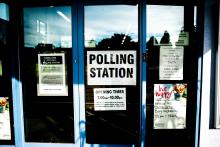
The startling finding of the 2000 census that by 2060 there would be no majority race in America sent shock waves through country, terrifying many white Americans. It also set in motion bold efforts to diminish the growing political power of African-American citizens. Among these were the census undercount, gerrymandering to dilute heavily black voting areas, and voter suppression. Today, at least 33 states have intentionally erected barriers to voting by enacting voter suppression laws.
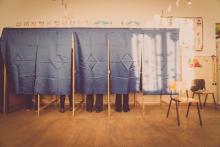
The purpose of Lawyers and Collars is to equip and empower pastors and local church leaders to work alongside lawyers to protect vulnerable citizens at voting precincts. Together, we can provide a legal and moral presence against voter suppression, intimidation, and harassment that are expected to rise in the 2018 midterm elections. The campaign welcomes the involvement of imams, rabbis, and other faith leaders.

IN 2016, VOTERS faced extensive efforts to make voting more difficult, particularly for people of color and those who are poor. These efforts at voter suppression occurred as a result of GOP gains in governors’ races and state legislatures while Barack Obama was president—and also as a result of the Supreme Court gutting a key provision of the Voting Rights Act in 2013.
Between those two factors, 23 states—including some key battlegrounds in the presidential election—had new voter restrictions in place for the 2016 election. Examples include laws that eliminated polling places or moved them to less accessible locations, reduced polling hours, tightened voter-ID requirements, “purged” voter rolls, and reduced early voting and Sunday voting, which are popular among minority voters in certain regions.
As we approach the 2018 midterms, we need to protect the right to vote for citizens of all races, economic levels, and political persuasions. This is an imago dei issue: If we believe that all human beings are created in the image of God (Genesis 1:26), then efforts to prevent some of God’s children from exercising their franchise must be opposed as a matter of fidelity to our faith. It’s also a Matthew 25 issue: If we believe that how we treat people living in poverty and those who have been caught up in the system of mass incarceration is how we treat Christ himself, then we have a clear Christian mandate to ensure that society’s most vulnerable can exercise the right to vote.
In-person voter fraud is vanishingly rare, to the tune of only 31 documented cases out of 1 billion ballots cast between 2000 and 2014. To put it another way, the odds that any given person will attempt in-person voter fraud are something like 1 in 32 million, significantly lower than the odds of being struck by lightning. Twice.
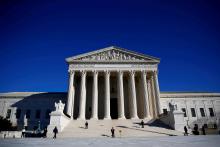
Voters purged from registration rolls who sued to challenge the policy in the Republican-governed state argued that the practice illegally erased thousands of voters from registration rolls and disproportionately impacted racial minorities and poor people who tend to back Democratic candidates.

EARLIER THIS YEAR I heard Rev. William Barber of the Moral Mondays movement in North Carolina use the phrase “Mr. James Crow, Esq.”
Since hearing the phrase, I have been reflecting on the revised and updated name for Jim Crow, the comprehensive and brutal system of racial segregation, discrimination, and terrorist violence against black lives and bodies—explicit in the U.S. South, and often implicit in the North, throughout the 20th century.
I have been thinking about this new and more-sophisticated Mr. James Crow, wearing a white shirt and a tie instead of a white sheet and a hood and inhabiting the back rooms in state legislatures and corporate offices instead of rural backwoods lynching sites.
I’ve also been thinking about Mr. Crow’s strategy for the 2016 election and the years ahead.
Mr. James Crow’s biggest concern now is the transformational demographic shifts occurring in the United States, which by 2040 or so will see a significant milestone: For the first time, the U.S. will no longer be a white-majority nation and, instead, will be made up of a majority of minorities. That’s one of the most important facts in American political life today. This fundamental demographic shift in racial and cultural identity is underneath almost everything in U.S. politics—including the presidential election.
So with a suit instead of a sheet, how does Mr. James Crow, Esq., enact his strategy? And what are the servants of Mr. Crow saying to one another?
THIS NEW VERSION of Jim Crow has a clear, systematic strategy to protect white supremacy and promote racial segregation, discrimination, and even violence. He knows that even he, with all his power, can’t prevent the racial demographics of America from evolving. But he thinks he can obstruct and delay the changes that new racial demographics will bring to American life and politics. In apartheid South Africa, we saw that even when a racial group is in the minority, it can wield the power to oppress other races and protect its own supremacy.
Mr. James Crow’s five-part strategy includes:

ELECTIONS HAVE consequences. It’s a phrase we hear all the time, generally from whichever party won a recent election and is claiming a mandate to fulfill campaign promises.
Sometimes, for those observing Washington from the outside, the truth of this statement can get lost. People see partisan gridlock and say to themselves, “Nothing ever gets done in Washington. Both parties have all sorts of problems. Why should I even bother to vote?” Yet the truth is that all elections—local, state, national—matter. They all have consequences. And in 2017, we are seeing this play out in particularly dramatic and alarming ways.
There are countless examples, but I want to focus on the Department of Justice. While most employees there are career civil servants who stay in their positions regardless of who is president, new presidents get to fill many of the top positions with political appointees. Presidents can pick whoever they want to fill these posts (some must be confirmed by the U.S. Senate), and they can be fired by the president at any time, for any reason. FBI directors serve 10-year terms to insulate them from political pressure, but as we saw in May with James Comey, they can also be fired by the president at any time.
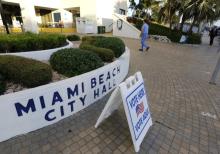
Florida's policy of banning felons from voting until they petition the government is unconstitutional and forces them to "kowtow" to the whim of state politicians, a federal judge ruled on Thursday. The ruling comes in a lawsuit filed on behalf of nine ex-felons denied the right to vote.
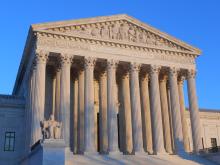
This decision is one of numerous lawsuits that accuse Republicans of discriminating against black and other minority voters who usually vote Democrat. The NAACP called this habit “apartheid voting districts” and claimed Republicans weaken and minimize the voting rights of black voters by packing them into one district and diluting their influence while surrounding them with more white voters that are likely to support Republican candidates. This practice is also known as racial gerrymandering.
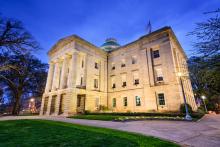
The U.S. Supreme Court has refused to hear an appeal by Republican leaders of a federal court ruling that removed ballot restrictions in North Carolina, due to the restrictions being discriminatory along the basis of race, reports Bloomberg News.
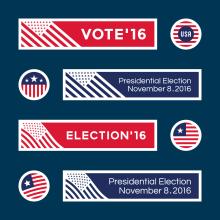
You should call the Lawyers’ Committee for Civil Rights Under Law hotline 866-OUR-VOTE (866-687-8683) if you, or someone you know, are notified that you can’t vote, or can vote only under certain circumstances, and you suspect that unlawful practices are to blame for the difficulty.
Likewise, you should call the hotline if you notice at the poll any of the following eight possible signs of voter suppression, or if you notice blatant voter intimidation.